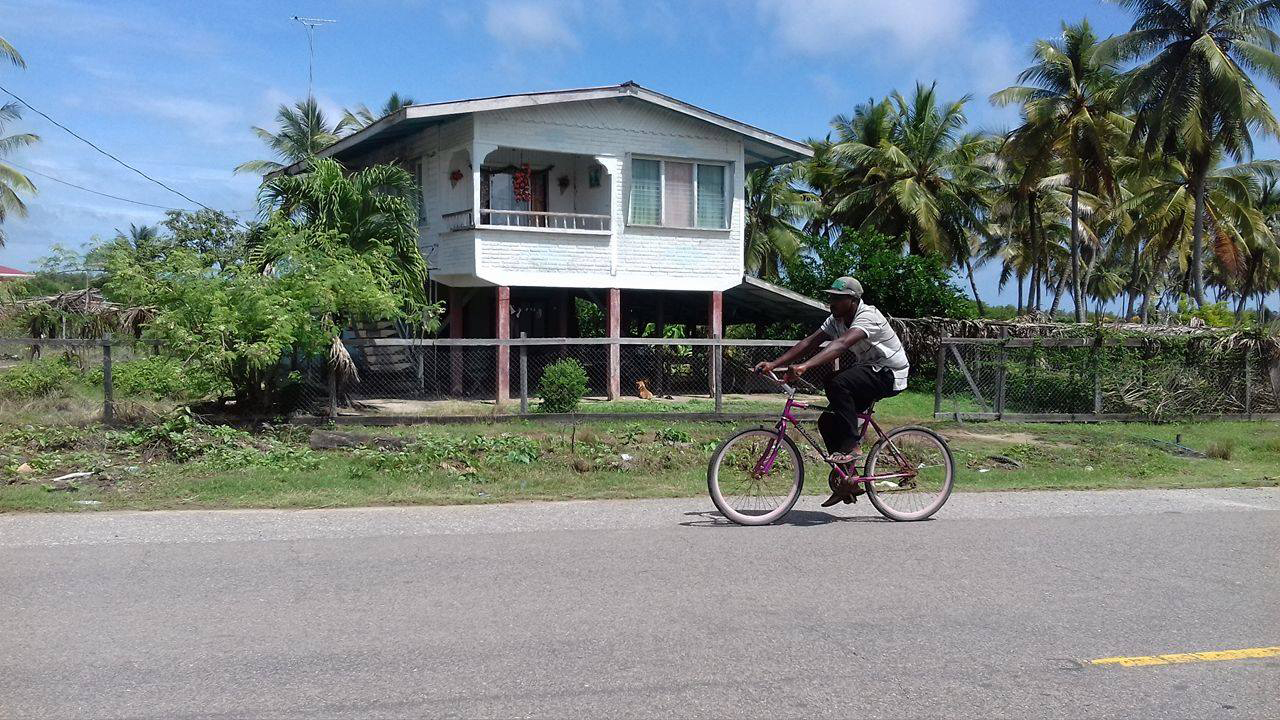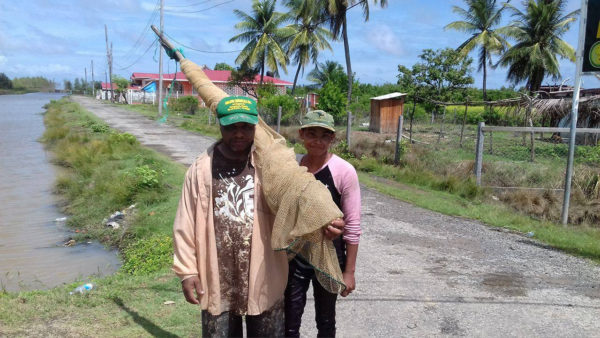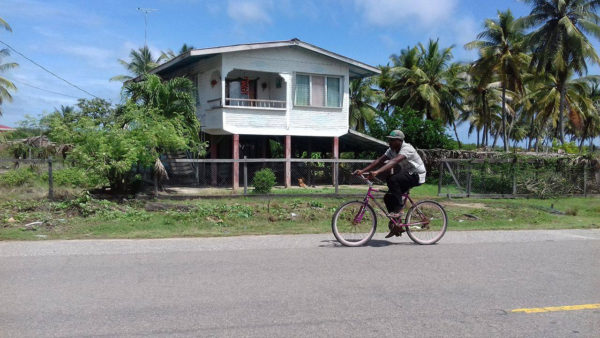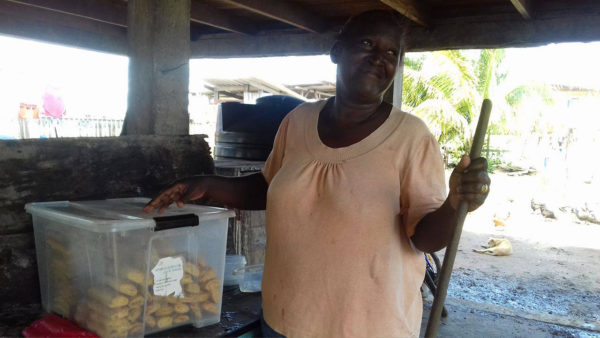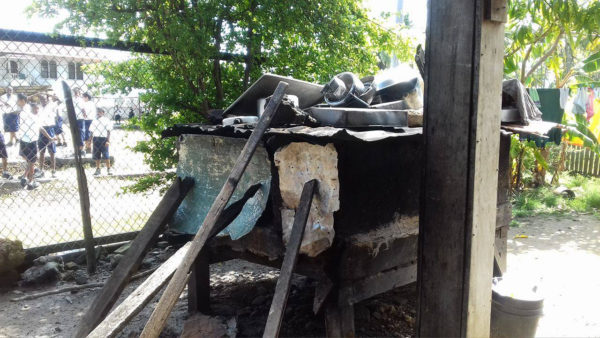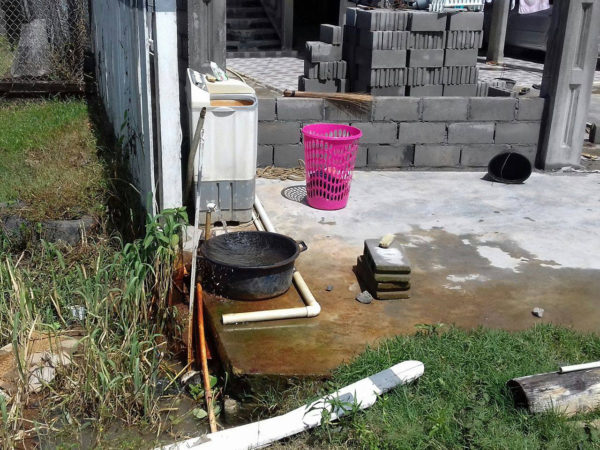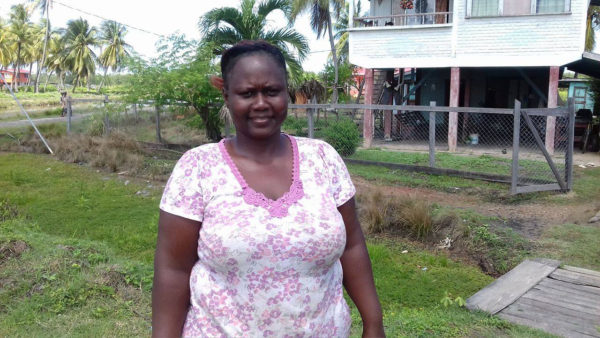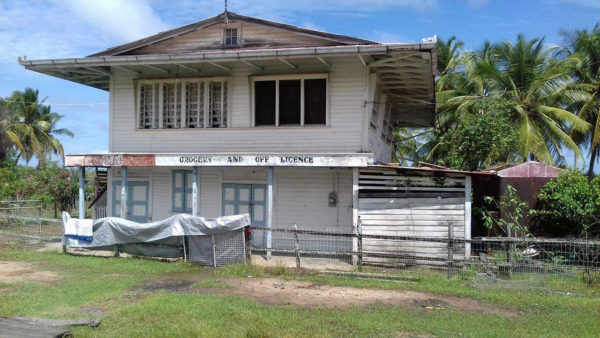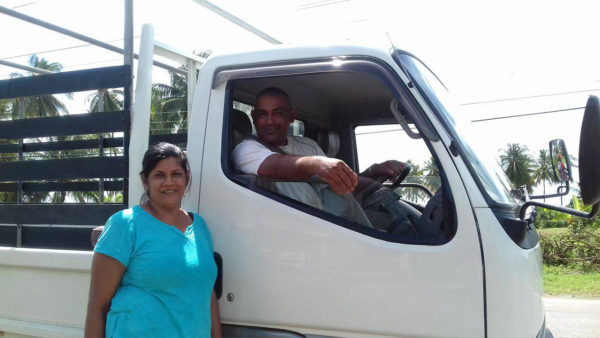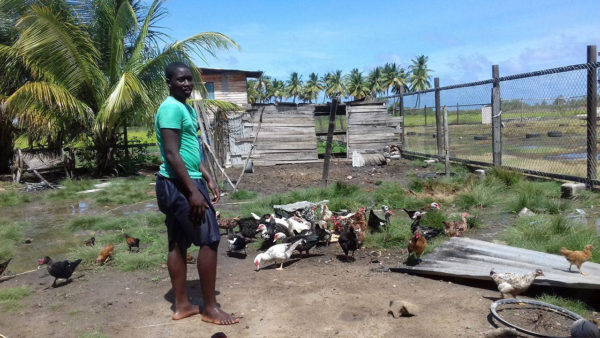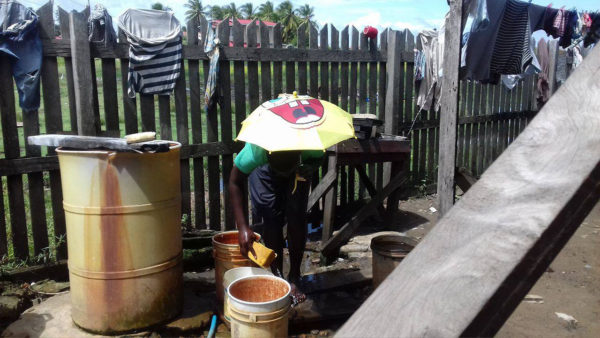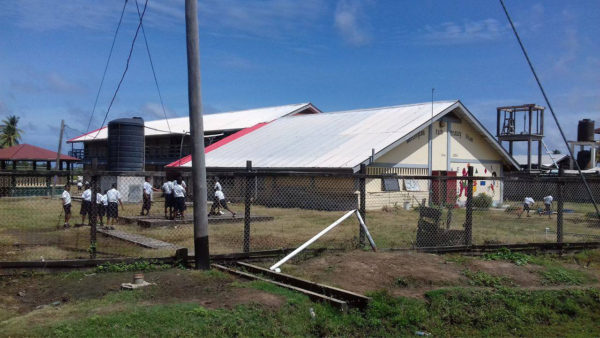Travelling along the Corentyne highway, you could miss Wellington Park, which is considered the smallest village on the Corentyne or maybe even in the entire Berbice, with its 12 houses and population of less than 50 persons.
Wellington Park is located directly before the Number 35 Village, when travelling from New Amsterdam.
There is just one cross street and that is located directly at the beginning, next to the signboard that proclaims it as Wellington Park.
The lifeblood of any community is its people and Wellington Park, like any other village in Guyana, reflects the roots and heritage of its people.
Nkase Pestano, 38, of Sub Lot A, Wellington Park stated that it is a very calm village. She has lived practically her entire life in Wellington Park with her now 70-year-old mother. Asked about the history of the quaint village, she said, “It’s an estate. We had a rice mill over there [she pointed]. The people who own this place gone outside.”
According to her, a long time ago lots of persons were living in the village, but as time passed by, they gradually sold their homes and moved overseas. But she said that a few years back a “set of new people move in.” Asked about the rice mill, Pestano said it closed its doors about 19 years ago.
When asked if she would want to see anything change in the village, Pestano replied with a strong and hearty “No! We get phone, water, light, even good drains,” she pointed out. According to the celery planter, the village comprises mostly farmers. “Much people na live around here. It always deh the same. Me like it,” she insisted.
A little further into the village, I met a couple returning from fishing in the backlands. They live in Cromarty returning from fishing in the backlands. They live in Cromarty Village and fishing together is a hobby, which helps keep their union alive. Sabrina, the wife, explained that whenever her husband, who is a carpenter, has time off from work, they would venture into the Wellington Park backlands, where they are always certain of a “Good catch”.
That day, the bubbly and chatty Sabrina said, they had caught shrimp, which they were taking home to cook up a pot of hot “shrimps curry.” We come about 9.30 and now is 10.45 and we going home back a ready. We like it; is fun for us.”
Meanwhile, further up lives the granddaughter of the couple who once owned the village. Omawattie Jago, also known as ‘Radha’ stated, “Wellington Park really belong to my grandparents.” She explained that years ago villagers were mostly family. However, relatives began selling their lands and migrating to different countries.
According to Jago, the village is a farming area, “Most people doing farming,” she said. “Some plant rice, some do cattle, … farming.”
The woman who is in the business of selling coconuts, said, “Since I was a baby we in the coconut business.” Jago said she believes the president’s encouragement towards citizens of Guyana to getting more into the coconut business was good and a great idea. However, she laughed, “It will be competition for me. The coconut price gone up and people getting back to it, most coconut going for export right now.”
She told the World Beyond Georgetown that her grandparents passed on a while back, but all of their children are alive residing in America and Canada.
Jago also used to operate a grocery shop. However, she decided to close down after the village’s population declined and her profits declined as well.
“I born and grow up here,” she said. “It’s a peaceful place. It not big, you can manage to survive in this village with whatever you doing.”
Wellington Park is also home to Denise Albert, a talented baker. She explained that she has lived in Wellington Park for over 35 years and it is the most “peaceful and quiet” village. “The people does cooperate a lot,” Albert said.
The 50-year-old explained that she bakes then loads up her donkey cart and travels around selling her pastries. Asked how business was, Albert replied, “After the holiday you know it lil slow,” but added with hope, “It will pick up.”
Her son, Royston Albert, is also an entrepreneur. He stated that a friend from nursery school had present him with a pair of ducks. “So come a have all this,” he said gesturing to a flock of ducks in his mother’s yard. The 14-year-old Manchester Secondary School student said he sells ducks and usually gets “A lot of sales.”
The young businessman said he hopes to one day become a mechanic, but will continue to rear ducks and sometime in the future, “Maybe other animals.”
There are two other buildings in the 12-house village: a primary school and a small private mandir.
